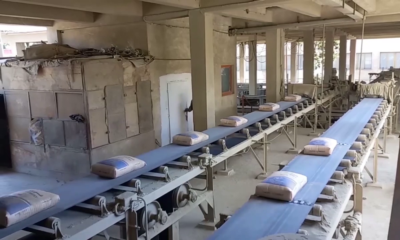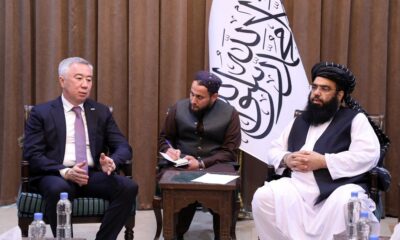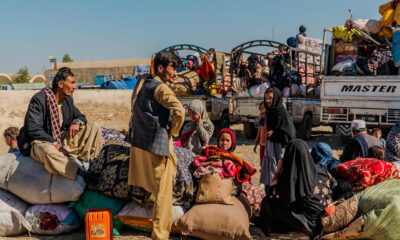Latest News
Afghans living in Pakistan ‘concerned’ about their safety
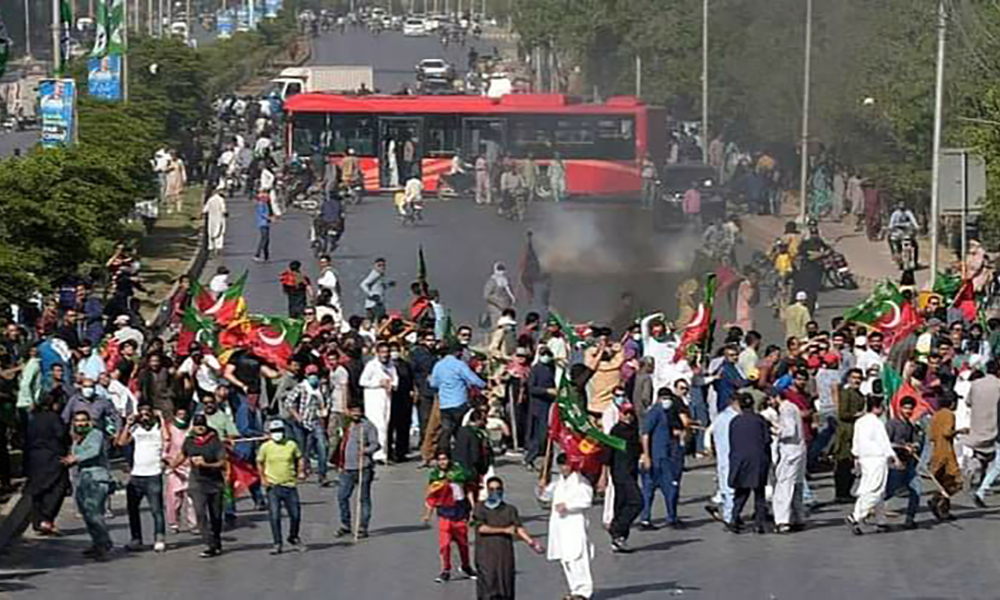
Afghans in Pakistan said they have been living in fear for the past two days and have avoided going outdoors due to the unrest that gripped the country following former president Imran Khan’s arrest on Tuesday.
Speaking to Azadi Radio, one migrant in Pakistan, Abdul Basit, said: “Afghan immigrants who are here do not feel safe. Their concern is that they can neither return to their country, nor do they feel safe in Pakistan. One of the countries that takes the files and cases of Afghan immigrants, Afghans who are in danger here, we request that their cases be dealt with seriously as soon as possible.”
Afghans reported having their internet services disconnected following the arrest of Khan on Tuesday and men said they could not leave their wives and children at home alone.
Another Afghan, Abdul Rahman Karimi, told Radio Azadi about his family’s problems in Islamabad: “We can’t easily go to the market to buy goods, women are facing a lot of problems. Our children who used to be able to go to the market with women for now, they can’t. These problems are increasing every day. On the other hand, the problem of the internet being cut off and social networks not working, including Facebook and WhatsApp, are problems that we immigrants in Pakistan are facing.”
Imran Khan supporters demonstrated across the country following his arrest on Tuesday. In a bid to calm the situation, the Pakistan government deployed thousands of police and military personnel around the country to contain the unrest and blocked internet services in many areas.
But late Thursday, Pakistan’s Supreme Court ordered Khan’s release, declaring his arrest “illegal”.
“The Supreme Court reversed all legal proceedings against Imran Khan … he has been asked to present himself in the Islamabad High Court on Friday morning,” lawyer Babar Awan told reporters.
Awan said the court ruled that Khan was now under its custody and not of the anti-graft agency, adding he would spend the night in the same police guest house as before with permission to see up to 10 people from friends and family.
It was not immediately clear when he would be allowed to go home.
Meanwhile, the Ministry of Foreign Affairs of the Islamic Emirate of Afghanistan (IEA), expresses deep concern and sadness regarding the recent developments in Pakistan, which have resulted in protests accompanied by instances of violence.
Hafiz Zia Ahmad Takal, the spokesperson of the Ministry of Foreign Affairs IEA, stated that in light of the current situation, the Ministry has provided necessary instructions to its representatives to ensure the safety and security of #Afghan citizens residing in Pakistan.
Latest News
Ghori State Cement in Baghlan increases production
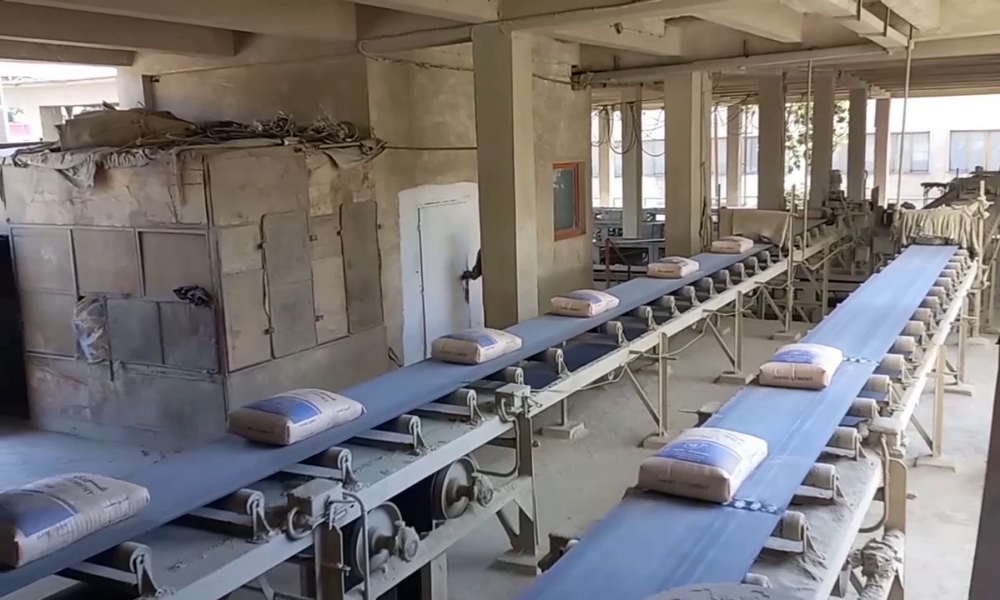
Officials at Ghori State Cement in Baghlan province say the amount of cement produced at this plant has increased compared to the past.
According to company officials, 150,000 tons of cement was produced in 1402 [solar year] and they are trying to increase the amount to 180,000 tons this year.
“Last year, we successfully produced 150,000 tons of cement and sold it to the market. Fortunately, in 1402, we had more than 200 million afghanis in revenue,” said Abdul Wakil Qayumi, financial and administrative deputy of the company.
The plant officials stated that efforts are underway to increase the production capacity, and with the increase of the production capacity, they will produce 1000 bags of cement per day.
“Currently, our four ovens are active, and we produce approximately 1,000 to 1,200 tons of cement in twenty-four hours,” said Mohammad Tahir, packaging manager for the company.
In this company, jobs are created for 750 individuals, and some workers have asked the traders to invest in the country and provide work for young people.
“Some more factories should be built in our country so that less foreign cement is imported into the country and we use our own products,” said one of the company workers.
Ghori Baghlan Cement Company was established about 40 years ago and is considered one of the largest cement production companies in Afghanistan.
The management of this company is carried out by the National Development Corporation (NDC).
Latest News
Regional countries should jointly expand stability and development: Deputy PM
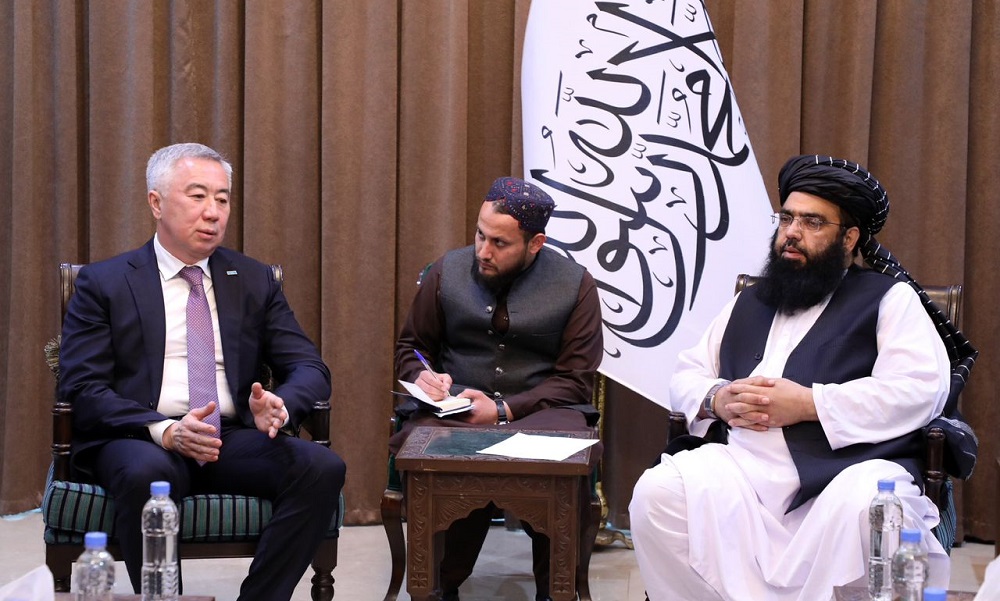
Mawlawi Abdul Kabir, Political Deputy Prime Minister, has said in a meeting with the Deputy Prime Minister of Kazakhstan in Kabul that regional countries should play their role in the implementation of large regional projects.
Kabir also invited Kazakh businessmen to invest in Afghanistan, his office said in a statement.
He added that the Islamic Emirate fully controls Afghanistan’s borders, has eliminated drugs and corruption, and restored national sovereignty.
According to the statement, Deputy Prime Minister of Kazakhstan Serik Zhumangarin appreciated the progress made by the Islamic Emirate in Afghanistan and said that his country is ready for long-term trade, transit and investment relations with Afghanistan.
Zhumangarin expressed his country’s readiness to grant scholarships to Afghan youth and added that Afghanistan is currently an example of a peaceful country in the region, and due to this, the world wants to establish relations with the Islamic Emirate in various fields.
He also called for the start of direct flights between Kabul and Almaty and said that his country is ready for bilateral cooperation with the Afghan government in the cultural field.
Latest News
Red Cross official seeks ‘staggered’ return of Afghan refugees from Pakistan
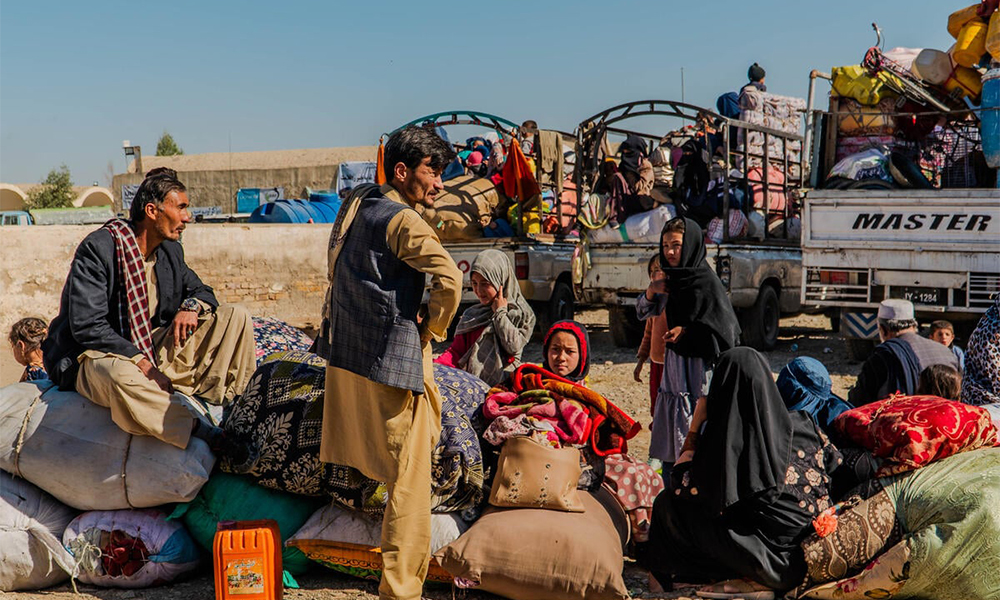
A senior Red Cross official has called for the return of Afghan refugees from Pakistan to occur “in a more staggered way” so Afghanistan can better absorb them.
“It will be important to work with the government of Pakistan in 2024 to ask that if there are going to be returnees,” that they arrive “in smaller numbers at a time just so it is more manageable on the Afghan side,” said Alexander Matheou, regional director, Asia Pacific Region for the International Federation of the Red Cross, Voice of America (VOA) reported on Saturday.
Speaking in the Qatari capital, Doha, Matheou told journalists on Friday the challenges facing Afghan returnees from Pakistan was one of several pressing issues he discussed with the officials of the Islamic Emirate in Kabul.
“You will be aware that over half a million have crossed the border over recent months, and it is likely that we will see large numbers of new arrivals in the coming months,” he said.
“I imagine this is probably the largest population flow in a short period of time in Asia since the population movement from Myanmar into Bangladesh in 2017,” he added. “So, it is a significant event.”
Since October, Pakistan has expelled more than 500,000 Afghan refugees who lacked proper documentation.
Matheou noted many of the returnees have lived in Pakistan for decades and are ill-equipped to begin a new life in a country that to them is unknown, without government or international support.
He described the returnees as being in generally poor health, especially the children, who account for nearly half of all returnees.
“The evidence of that was we visited clinics where they reported a real spike in cases of acute malnutrition coming from the arrivals from Pakistan.
“We visited routine immunization programs of the IFRC and the Afghan Red Crescent in the villages, and there it was clear looking at the children that as well as being anemic, you could see wasting and stunting among the children,” he said.
-

 World5 days ago
World5 days agoNorth Korea officials visit Iran in a rare public trip
-

 Sport4 days ago
Sport4 days ago‘Serious talent’ Fraser-McGurk bonds with Warner to light up IPL
-

 Latest News4 days ago
Latest News4 days agoOver 1,000 Afghan refugees forced out of Pakistan in one day
-

 Sport2 days ago
Sport2 days agoAfghanistan beat Iraq 5-3, inch closer to Futsal World Cup berth
-

 Regional2 days ago
Regional2 days agoNew UK sanctions target Iranian drone industry
-

 Regional3 days ago
Regional3 days agoTurkey accuses U.S. of double standards over Gaza in rights report
-

 Latest News2 days ago
Latest News2 days agoEU allocates 17 million euros to support Afghans on the move
-

 Latest News2 days ago
Latest News2 days agoPakistan extends registered Afghan refugees’ stay till June 30




